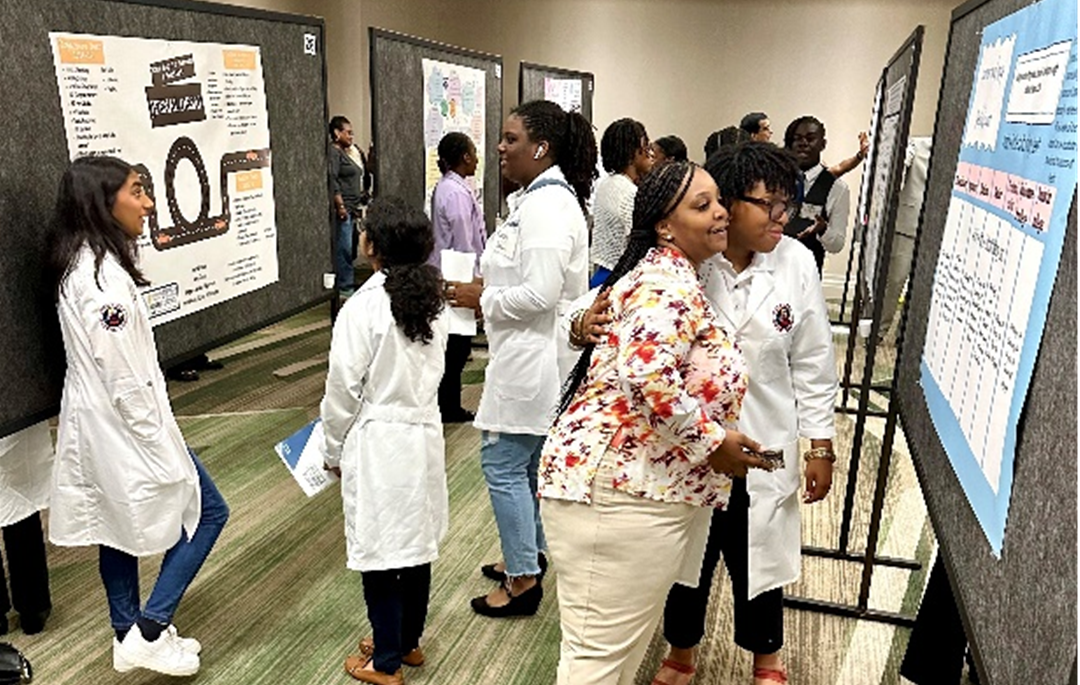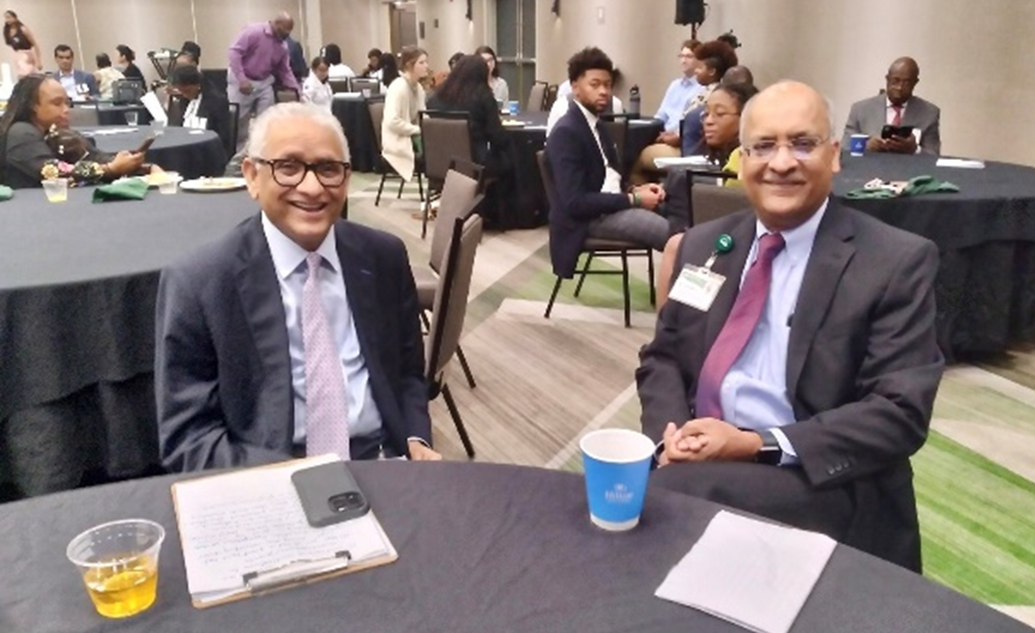 On July 24, more than 150 students, scholars and community advisors attended the annual scientific symposium of the NIH-funded U54 grant program supporting collaborative cancer research. In 2021, the National Cancer Institute (NCI) Center for Cancer Health Equity collectively awarded the UAB O’Neal Comprehensive Cancer Center, Morehouse School of Medicine (MSM) and Tuskegee University (TU) a five-year, $18 million U54 grant to continue to address cancer disparities in communities across the Southeast. This award was initially funded in 2006 and has been competitively renewed three times.
On July 24, more than 150 students, scholars and community advisors attended the annual scientific symposium of the NIH-funded U54 grant program supporting collaborative cancer research. In 2021, the National Cancer Institute (NCI) Center for Cancer Health Equity collectively awarded the UAB O’Neal Comprehensive Cancer Center, Morehouse School of Medicine (MSM) and Tuskegee University (TU) a five-year, $18 million U54 grant to continue to address cancer disparities in communities across the Southeast. This award was initially funded in 2006 and has been competitively renewed three times.
Anupam Agarwal, M.D., Senior Vice President for Medicine and Dean of the Heersink School of Medicine, addressed the gathering and urged the participants to think beyond their individual research projects and consider the broader impact their efforts to work for a common goal of achieving equitable cancer outcomes and benefit the communities.
Upender Manne, Ph.D., lead principal investigator and professor in the UAB Department of Pathology, and Isabel Scarinci, Ph.D., senior adviser for globalization Drs. Upender Manne (left) and Anupam Agarwaland cancer at UAB’s O’Neal Comprehensive Cancer Center, organized this year’s event held at the Hilton Birmingham Hotel at UAB. Of the 150 attendees, 90 were high school, undergraduate, graduate, or medical students; postdoctoral fellows; residents; or early-stage investigators from three institutions. At the symposium, research trainees made oral or poster presentations.
Drs. Upender Manne (left) and Anupam Agarwaland cancer at UAB’s O’Neal Comprehensive Cancer Center, organized this year’s event held at the Hilton Birmingham Hotel at UAB. Of the 150 attendees, 90 were high school, undergraduate, graduate, or medical students; postdoctoral fellows; residents; or early-stage investigators from three institutions. At the symposium, research trainees made oral or poster presentations.
The U54 grant focuses on intervention and prevention of cancer for communities across the Southeast, particularly in Georgia and Alabama – areas with some of the highest cancer mortality rates in the United States. Researchers from the institutions are encouraged to conduct cancer research, education, and training programs and engage the communities to understand the causes of cancer disparities.
The overall impact of the U54 partnership since its inception is significant. It has involved 56 cancer research investigators, more than 110 high school and 180 undergraduate students, over 275 graduate/post-doctoral and medical students, and over 105 early-stage investigators (junior faculty). The additional contributions of this program include 272 peer-reviewed publications specific to the aims of the U54 and 162 additional publications relating to cancer health disparities. More than 275 grant proposals have been submitted, with 108 being successful in obtaining funding by leveraging this program and resulted in increased funding at three institutions. From the beginning of the U54 grant to the end of 2023, UAB’s O’Neal Comprehensive Cancer Center now has more than $68 million in funding for the population cancer control program, which houses the majority of cancer disparity researchers. Funding at MSM has increased from $8 million to $75 million, and at TU, $800 thousand to $23 million.
As part of this NCI-funded program, in Metro-Atlanta, at least 600 ethnic minority patients received colon cancer screening. At UAB, more than 550 minority patients were recruited for cancer clinical trials, and at Tuskegee University, 400 minority individuals participated in a healthy lifestyle program. The U54 partnership program has developed undergraduate and graduate level cancer-focused courses and aided in developing research infrastructure at Tuskegee University and Morehouse School of Medicine and, at UAB, increased the critical mass for conducting research on cancer health disparities.
“This scientific symposium gave opportunities to the investigators, especificially the students, to engage in research and networking and to aid in applying the knowledge they gained during the training to make a difference and pave the way towards eliminating cancer health disparities,” Manne says. “I am confident that the U54 grant’s impactful research on cancer health disparities will continue to progress and make significant contributions to this crucial field.”